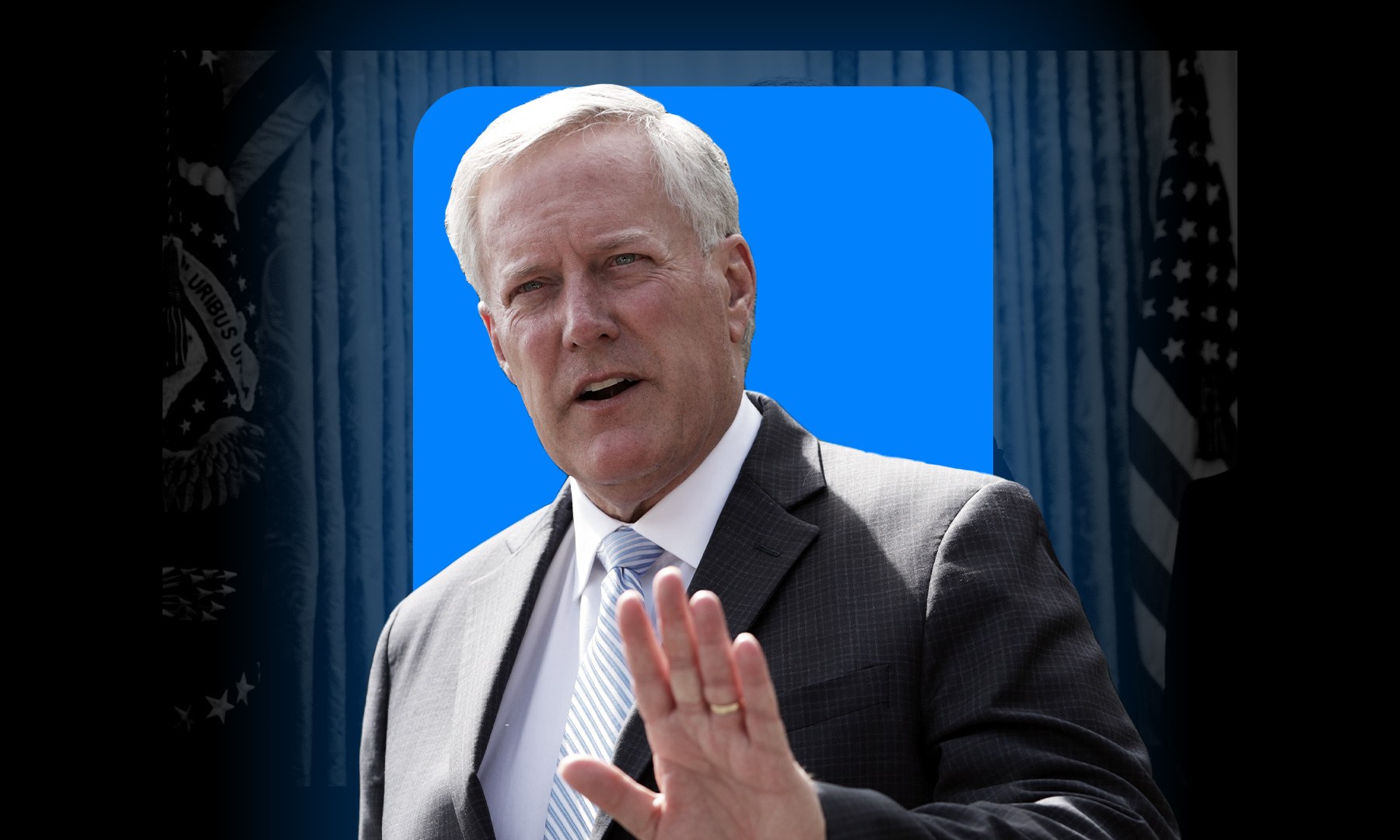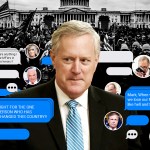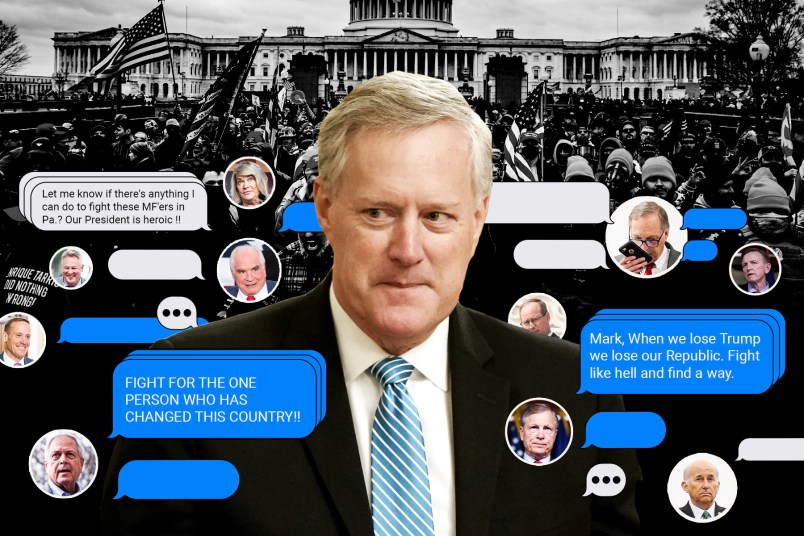It’s been quite a week. On Monday, we began publishing a series of stories based on the 2,319 text messages former President Trump’s last chief of staff, Mark Meadows, provided to the House select committee investigating the Jan. 6 attack. “The Meadows Texts” showed the high-level coordination behind the frantic, feverish effort to challenge Trump’s loss in the 2020 election.
Over the course of a dozen different stories, we showed you how members of Congress, Trump administration officials, campaign operatives, local politicians, an army of lawyers, and at least one CEO schemed behind the scenes to fight the will of the people. TPM obtained these texts from multiple sources and our subsequent reporting identified the people who played leading roles in this effort including Sen. Ted Cruz (R-TX), Rep. Mo Brooks (R-AL), Rep. Jim Jordan (R-OH), Rep. Jody Hice (R-GA), and Rep. Scott Perry (R-PA).
This was the political movement that fueled and coincided with the violent assault on the U.S. Capitol that took place on Jan. 6, 2021, as the election was being certified. Our work showed how the challenge to that certification began while the votes were still being counted and continued well after the attack in Washington. The political leaders of this undemocratic campaign may not have broken the windows or brawled with the Capitol Police. But they promoted the baseless conspiracy theories that radicalized and drove the crowds that day. They also conceived of and pursued the extra-legal strategy to stop Congress from certifying the election in the hope that friendly legislatures would overrule the voters and choose their own electors. Additionally, these stories showed the violent rhetoric of the political arm of the election challenge including at least one call for “MARSHALL LAW” from Rep. Ralph Norman (R-SC) that was an affront to both the English language and American ideals.
“The Meadows Texts” also revealed some previously unreported instances of Trump’s own involvement including his work to put pressure on a swing state governor and a call for voting machines to be seized. The series also captured how some of the allies who offered to help Trump paired support for the president’s desperate attempt to hold power with requests for political favors. Perhaps most importantly, this series also laid bare the utterly unhinged paranoia and detachment from reality underpinning the assault on the American democratic experiment.
Despite all of these revelations, we also know these texts were just the tip of the iceberg. They are the messages Meadows and his legal team provided to the committee. Within that log, there are indications discussions were missing, including conversations that clearly begin without context as well as signs Meadows and his associates moved their communications to encrypted channels. It’s frightening to imagine what might have been contained in the calls and texts we could not see.
Much of the push to reverse the result of the free and fair 2020 election played out in the public eye. Trump spent weeks promoting lies about the vote and his team mounted a wild legal challenge that flailed its way through courts around the country. Over 100 Republican members of Congress objected to the election results at the Capitol on Jan. 6 even after the shocking violence.
Even though the attack on democracy played out live, there has been an ongoing attempt by many on the right to deny the reality of it. Our reporting on Meadows’ text messages showed how this effort to deflect blame began even as the Capitol was still under siege. When we reached out to the various players who conspired to reverse the vote, some attempted to minimize their roles. However, with this series, readers don’t have to take our word for it or theirs. The American public can see the participants in the push to overturn the election in their own words.
This project was a massive effort for TPM. A team of five reporters — myself, Josh Kovensky, Kate Riga, Emine Yücel, and Kaila Philo — all worked to write and report these stories. Over five weeks, we reviewed thousands of messages and burned up the phone lines. This evidence was initially compiled by investigators working with the Jan. 6 committee, but we hope you will agree that our context, analysis, and publication helped make them accessible and understandable.
For me personally, this project is the culmination of nearly two years of extensive reporting on Jan. 6 that included broadcasting from the steps of the Capitol that day and co-writing the book “The Breach” with Denver Riggleman, a former Republican congressman and staffer for the select committee. Witnessing what happened that day made it quite clear this was one of the most important stories of our time.
It all could have been so much more violent. The bombs placed on Capitol Hill did not go off. Police engaged in hours of hand-to-hand combat, and even though both sides of the fighting were armed, the day ended with only one person shot. Those officers aren’t the only ones who resisted the assault. Around the country and in Washington a handful of officials refused to give in to pressure from Trump and his allies to toss the election results aside. Despite the horrifying violence in the cradle of our democracy, we were relatively lucky on Jan. 6, but there is a real risk in counting on similar good fortune in the future. The violent and authoritarian possibilities created by MAGA conspiracy culture have been laid bare. And, as this series has noted, that movement is not going away.
Helping to lead the reporting team along with our editors David Kurtz, John Light, and Josh Marshall has been a true honor. The impact of TPM’s “The Meadows Texts” series has been clear. Our stories were covered on television and by major magazines. Reporters expanded on our work with additional analysis. Local news outlets around the country also pressed the various members of Congress named in these stories about their parts in the plotting. And on Thursday, a bipartisan group of over 30 former House members sent a letter calling for an investigation from the Office of Congressional Ethics because, “We now know, for example, that sitting lawmakers corresponded and met with White House officials and allies to plot various prongs of the campaign, including to advocate that the president declare martial law.” The story even transcended the political world and penetrated pop culture.
Through all of this, the most important impact was the support we received from TPM readers. Our subscribers have enabled us to put together a team that is capable of a large, complex undertaking like this one. It won’t be the last one and we hope you will join TPM and help us continue this work.
“The Meadows Texts” did not just involve written stories. As we sought to inform the public about the contents of these messages and the coordination of the election challenge, our tech and design team — Derick Dirmaier, Christine Frapech, Jacob Harris, and Matt Wozniak — worked to create solutions that allowed us to publish Meadows’ messages as they might have appeared in your phone.
Experiencing these texts in their natural form — typos and all — is crucial to appreciating just how disturbing they were. The various conspiracies and anti-democratic schemes were thrown out with a carelessness and utter lack of intellectual rigor. This was a coup attempt that sought to evade checks, balances, and spellcheck.
The TPM spirit has always been able to draw humor from even the darkest moments. We aim to provide clear-eyed original reporting on extremist threats that also appreciates the absurdity inherent in the American fringe. But make no mistake, this was all deadly serious. Inside Meadows’ phone we saw a plot against our democracy. We can’t look away.










If you don’t want others to find out don’t leave a digital trail.
“Is you sending text messages on a criminal fucking conspiracy?”
Josh and Team: I’m thinking a Pulitzer is in the cards for your Meadows reporting.
To T****, Meadows, the 34 GQP members of Congress, Eastman, et al:
You fucked around, now find out.
I would agree